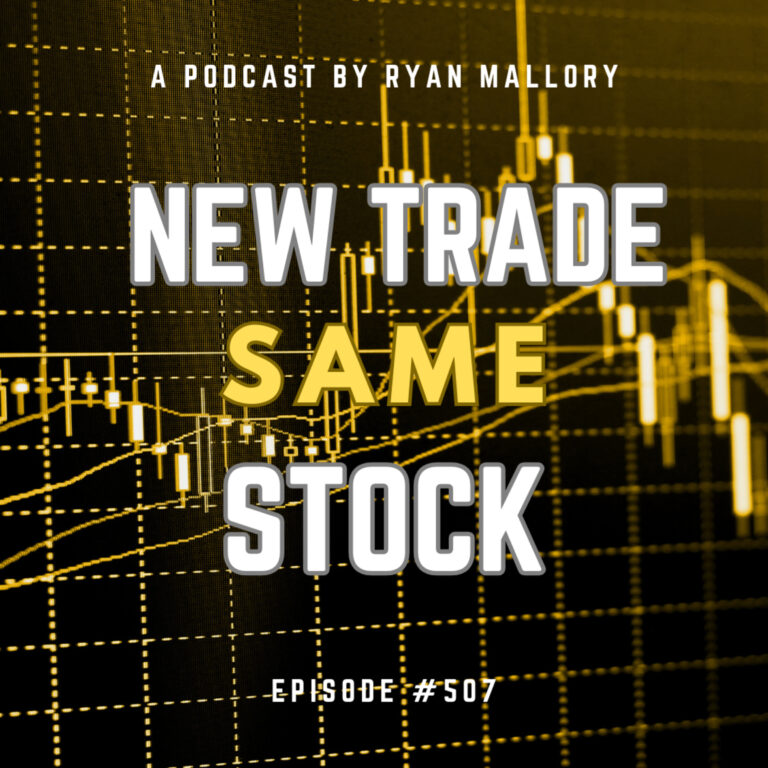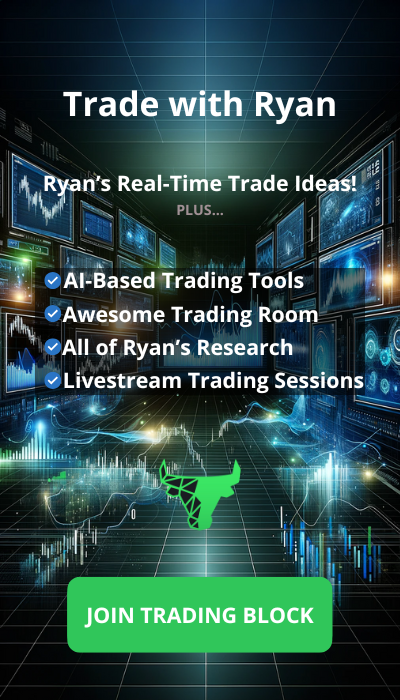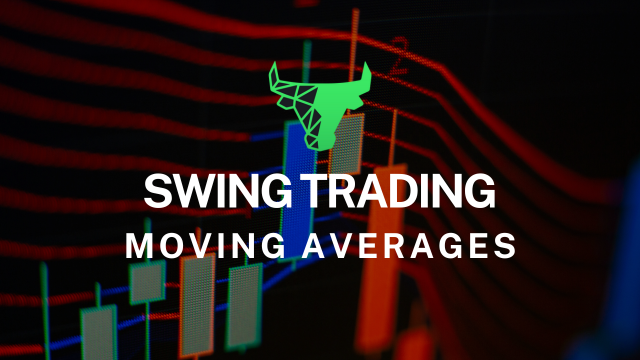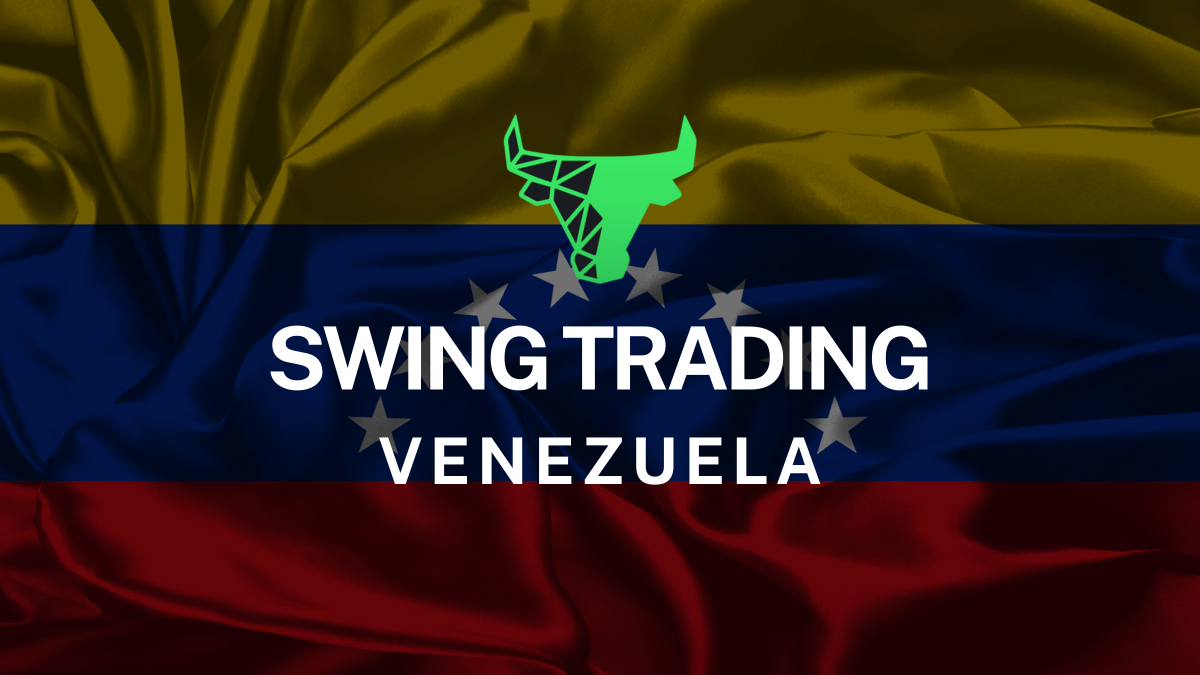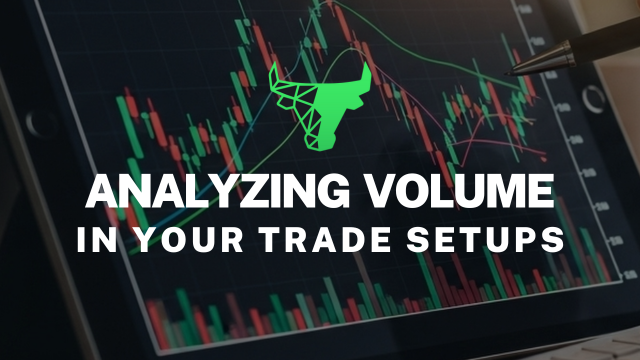Episode Overview
How does one get involved in the investing world as well as manage a small $240 trading account? In this podcast episode Ryan details how he got starting in the investing world and what the expectations should be for a trader with a small account and just starting out.
Available on: Apple Podcasts | Spotify | Amazon | YouTube
Episode Highlights & Timestamps
- [0:07] Starting Young in Trading
Ryan introduces Huck, an 18-year-old eager to begin his trading journey with a small account and big aspirations. - [2:15] Small Accounts and Realistic Expectations
Ryan emphasizes the importance of managing expectations and using small accounts as a learning tool, not a get-rich-quick
scheme. - [5:31] Creating Your Own Path in Finance
Explains how you can forge a career in finance without traditional Wall Street experience or a big-name firm. - [11:24] Building a Strategy with Limited Funds
How to approach trade sizing, price ranges, and risk management when working with as little as $240. - [14:55] Focus on Good Trades, Not Dollar Amounts
Ryan explains why focusing on trade quality over dollar outcomes is key to long-term trading success.
Key Takeaways from This Episode:
- Start with Realistic Expectations: Accept that early trading accounts are more about education than profit.
- Carve Your Own Niche: You don’t need Wall Street to succeed in finance, create your own platform and influence.
- Respect the Learning Process: Don’t chase big returns with tiny accounts. Learn discipline and strategy first.
- Ignore the Noise: Avoid the fantasy of turning $1,000 into $100,000, focus on proven, slow growth methods.
- Trade Based on Strategy, Not Emotion: Don’t let outside needs or emotional pressures dictate your trades.
Resources & Links Mentioned:
- Swing Trading the Stock Market – Daily market analysis, trade setups, and insights by Ryan Mallory.
- Join the SharePlanner Trading Block – Get real-time trade alerts and community support.
Take the Next Step:
✅ Stay Connected: Subscribe to Ryan’s newsletter to get free access to Ryan’s Swing Trading Resource Library, along with receiving actionable swing trading strategies and risk management tips delivered straight to your inbox.
📈 Level Up Your Trading: Ready for structured training? Enroll in Ryan’s Swing Trading Mastery Course, The Self-Made Trader, and get the complete trading course, from the foundational elements of trading to advanced setups and profitable strategies.
📲 Join the Trading Community: Sign up for SharePlanner’s Trading Block to become part of Ryan’s swing-trading community, which includes all of Ryan’s real-time swing trades and live market analysis.
Full Episode Transcript
Click here to read the full transcript
0:07
Hey, I’m Ryan Mallory and this is my swing Trading the Stock Market podcast. I’m here to teach you how to trade in a complex, ever changing world of finance.
0:16
Learn what it means to trade profitably and consistently, managing risk, avoiding the pitfalls of trading, and most importantly, to let those winners run wild.
0:25
You can succeed at the stock market and I’m ready to show you how. Hey everybody, this is Ryan Mallory with shareplanner.com’s
0:33
Swing Trading the Stock Market. In today’s episode, we are talking about the small account.
0:37
So today’s episode comes from a guy 18 years old, just turned it a few weeks ago. So happy birthday to this guy who we’re going to call Huck.
0:46
Like all my podcast episodes, I give people a Florida redneck name being MyHeritage is here from Florida, born and raised.
0:53
So I’d like to give you guys good Florida names so I don’t have to use your real identity in these emails.
0:59
So Huck writes. Hi Ryan.
1:02
So I just turned 18 a few weeks ago and was eager to invest. Since then, I’ve been doing tons and tons of research, and I stumbled across your podcast and listened to many episodes, which I have found very helpful.
1:16
I’m planning on majoring in finance in college and I find this kind of stuff very interesting. I was wondering if you could give me some advice on how to go about managing my small account and how to propel myself into the financial world.
1:25
Here’s my current situation.
1:30
I currently have $500 invested in mutual funds through the Roth IRA and I took about $240.00 of my own money for swing trading on a separate account.
1:38
I have all my non long term money invested in small to big sized companies, $30.00 or less a share. I know I probably won’t make a whole lot of money from these kinds of stocks, but I’m OK with that
2:03
OK Huck, good question. Really two types of questions.
2:07
This guy, he’s wanting to get into the financial world. He’s trying to propel himself into the financial world by his own words and he’s managing a small stock account.
2:15
One thing I would say, and I think it’s very easy for people to look down on others for having a small account or paper trading or whatever.
2:22
I get that small accounts and paper trading essentially isn’t going to make you anything in in terms of paper trading and very little if any in a small account.
2:31
But when you’re just entering into the world of trading, what is the expectations to begin with?
2:41
I would probably say the expectations is that you’ll lose money, right? So if we have that out of the way, we don’t have to get ourselves too worked up about the fact that if we do make money, it’s not going to be that much.
2:50
And so I think Hook is actually in the right frame of mind.
2:55
He doesn’t have the expectations that he’s going to make a lot of money. And if he does lose this money, the swing trading money, that it’s something that he can live with.
3:03
Now, that doesn’t mean we just want to blow the money or go down to the horse track and put it on horse #8 but having that frame of mind and understanding.
3:14
Because here’s the thing, a lot of people will get into the stock market with $100. Or I even ran across somebody the other day saying that, hey, I got $1000.
3:24
I want to put somewhere. And I’ve heard that you can really take the money in the stock market and turn it in from something from being $1000 to like $100,000 in a year.
3:28
I’m thinking to myself, really, tell me more because I’d like to get in on this one because I don’t know if such a thing now, can you go on Instagram and can you go on Twitter and all these other social media platforms and find people who will tell you that you can do exactly that?
3:50
Absolutely. They’re out there, but all they know, and to quote Tommy Boy without using any expert, is they know that all they sold you was a guaranteed piece of crap.
3:57
Their services aren’t worth anything.
4:02
So you’re going into the market with a small account, have the expectation that it’s going to be a grind, that you’re really in it for now until you can build up that account over time.
4:10
And at 18 years old, you have plenty of time to do that. You’re trying to build your account up over time, probably by the big increases are going to come from the money that you add to your account and expect there to be a lot of frustrations along the way, a lot of self doubt.
4:24
I can tell you one thing, if there’s been anything that’s always been present in my trading over the years is self doubt because that’s what trading is meant to do, is meant to make you doubt yourself
4:36
because trading is very difficult. You’ll go through draw downs, you’ll go through losing streaks, and it’s during those times that you’re going to find yourself the absolute most frustrated and doubting of your abilities.
4:43
I wish I could keep track of how many times I’ve doubted myself as a traitor.
4:53
It’s happened a lot over the years, but I’ve been doing it now for I started doing this when I was 11 years old.
4:57
That’s like 30 years of experience. When I first started off, obviously when I was 11 years old, I didn’t really know what the heck I was doing.
5:03
I was being guided by a parent that was showing me how to do it.
5:06
But over the course of those 30 plus years now, I guess it’s like 3033 years, I’ve come across sometimes where I, I didn’t think I had what it takes.
5:17
I didn’t think I was very good at it, but I kept persisting.
5:23
And so we’re going to go back and forth here a little bit.
5:31
One of the questions that he says as a finance major in college, he wants to get himself into the financial world and how can he do that?
5:38
Well, for one, I’ve never been into a Goldman Sachs office before.
5:41
I wish it was more like the 80s floor and or the 90s floor where people are actively trading down there and making all the the goofy hand signals that that would be pretty fun to experience.
5:50
But I’ve never been there before. I’ve never been to Wall Street.
5:53
I’ve never been in a hedge fund office before.
5:58
I think I’ve been on TVA couple of times. I wrote a book back in 2013.
6:01
I don’t think they even write that book anymore. I wouldn’t necessarily go out of the way to buy it either, but I really have actually avoided all of those avenues.
6:08
I don’t want to be part of, you know, the Wall Street group.
6:13
I don’t go to conferences. I think the last conference that I went to was a trading Expo back in 2010.
6:19
That was it. I haven’t been to one since then.
6:21
I rarely ever get on an airplane. And I’m fine with that because here’s in the end, you can carve out your own niche in the financial world.
6:29
And I’ve done that for myself.
6:31
And it going into the college majoring in finance, you’re going to learn some stuff about the the market and about investing.
6:38
But one of the things I would tell you is to not believe it all. They’re going to tell you a lot of things like the efficient market hypothesis.
6:45
I remember that because I did economics and I did political science, but in economics they talked about that finance.
6:50
I’m sure they’ll talk about if they talk about anything regarding the stock market.
6:59
They’ll tell you essentially that the efficient market hypothesis, which is a, a theory that was put forth by this guy named Robert Fama back in, I don’t know, like the 50s or 60s.
7:07
I think that essentially says that everything that can be known about the stock market is already priced into the market.
7:13
That’s definitely not true. That was the case.
7:16
Perfect example was just last week, FOMC comes out with A50 basis point rate cut. The market actually goes down that day.
7:25
The next day the market rallies because of the 50 basis point rate cut. If the market was efficient, it would have priced in that move the previous day because it had all that information at that time, yet it did not price it incorrectly.
7:33
So when you, when you’re in college and they start to talk about the efficient market hypothesis,
7:42
know that they’re just full of crap, that there’s nothing to it. The market is very, very inefficient.
7:48
If it wasn’t, we would never use terms like oh, this stock is overvalued or this stock is undervalued.
7:53
Everything would be perfectly valued and there would be no emotions in the market either. But that’s not the case.
7:59
Markets very emotional market has wild swings that makes zero sense because it’s very, very, very inefficient.
8:06
Now overtime, does it tend to get it right? Yes.
8:09
Like, you take, for instance, Apple. Apple’s a good company.
8:12
Apple’s made billions and billions. I don’t know, maybe they have made a trillion dollars.
8:16
I’m not sure exactly how much money they’ve made over the years. Yeah, it’s probably over a trillion.
8:19
I mean, they’re a $3 trillion company, but the market got it right about Apple. It continued to increase its share price over the years.
8:27
But on a day-to-day basis, does it get it right? No, look at look at how crazy the market reacts anytime somebody says AI in reference to a company,
8:36
the market goes nuts and they start going on a buying friendly only to realize that half the time that they were stupid for doing so.
8:42
But with social media, and I’ve been doing SharePlanner since 2007. I think I’ve been on Twitter since like 2009.
8:48
If you want to follow me on Twitter, it’s at SharePlanner. There’s nothing unique about the username, but yeah, you can go there and follow me on it.
8:56
But I’ve been able to to create my own little sphere of influence. Whether or not, you know, that’s a big part of the financial world or not, I don’t really know.
9:04
But I think I’ve, I’ve been able to impact a lot of you guys listening to the show. So I’m happy about that.
9:09
But the important part is to create your own sphere of influence. I feel like the best way to do it is your way.
9:13
I talked about how you know, your own trading needs to be based off of your lifestyle. You know, it has to meet your lifestyle.
9:20
If you’re trying to trade somebody else’s strategy that doesn’t necessarily fit your lifestyle, it’s going to be a difficult strategy to be successful at.
9:27
So you need to create your own niche. You, you need to create your own way of, of trading that conforms to your, to your style and
9:35
likewise the career that you’re going into. You don’t necessarily have to go work for a Goldman Sachs unless you want to work 80 hours a week
9:43
and never have a weekend to yourself. I personally don’t like that kind of stuff, have no desire for it.
9:48
I’ve been offered jobs. I don’t want them.
9:50
I’ve been asked to do interviews with Bloomberg. Don’t do them.
9:54
First of all, I just don’t really trust the media to begin with. Second, I don’t want my words to be taken out of context.
9:59
Like I had one, Bloomberg asked me about shorting the market. OK, I’m going to go on there and I’m going to tell them that, you know, I might be shorting the
10:07
market at this particular time and I was profitable when I was doing it. And then they go and put that in an article and it makes me sound like, you know, the dude from The
10:14
Karate Kid that’s yelling from the sidelines during the West Valley tournament. Sam put him in a body bag, Johnny.
10:20
Yeah, I don’t I that’s probably how they would make a short and trader out to be in a Bloomberg article.
10:26
So am I going to go do an interview with him? Absolutely not.
10:30
But one thing that I think you should do is check out swingtradingthestockmarket.com. Yes, I am telling you about the service that goes alongside of this podcast where you can get all my
10:37
stock market research each and every day. Going to swingtradingthestockmarket.com will take you to the SharePlanner site and give you
10:44
options of different different packages you can choose from. One that I would talk about here is the Swing Trading the Stock Market package where you can get
10:51
all of my stock market research each and every day. That’s going to include the mega cap updates via video multiple times a week, stock market updates
10:57
multiple times a week, as well as daily watch lists that I put out each day telling you which stocks that I’m following for potential trade setups and a daily watchlist review.
11:06
Yeah, I go on video and I provide my review of the stocks and the watchlist that day for you to be able to get an idea for what’s working for what’s not working.
11:14
And plus I sent out a master watchlist for which I curate all those trade setups from at the beginning of each week.
11:20
So it’s a really good value. It’s it’s pretty cheap too, so check it out swingtradingthestockmarket.com.
11:24
So we talked a little bit about propelling this young 18 year old guy into the financial world. One of the things that I would also say that to wrap up this particular question is to not look at
11:35
that as a you’re being propelled into the financial world or thrusted into the financial world like you’re just going to arrive there immediately.
11:44
Instead, look at it as you’re grinding your way into the financial world. It takes time be adapted to change.
11:52
I can tell you one of the reasons why I’ve been doing SharePlanner since 2007, and it’s because I’ve been adapted to change and I’ve been willing to let things play out.
12:01
When I started this podcast, I think it was back in 2016 or 2017, I remember looking at analytics and I think like nine people listen to the show that month.
12:09
It wasn’t much, but I kept doing it regardless if anybody was listening to me or not. It was actually good for me to talk about all these different topics and, and to be able to even
12:19
hone in my own understanding of the stock market as well. So I kept doing it and eventually people started listening to it.
12:25
What can I say? But when it comes to trading a small account, you’re working with a $240 account, obviously you’re
12:36
going to have to add to that over the overtime if it’s going to make any real gains at $240. I wouldn’t expect it to to make you that much.
12:43
And he even mentions that he doesn’t expect it to either. But one of the things that you’ll run into that’s kind of hard is that it’s going to be hard to have
12:51
like 7 or 8 position in positions that you can take partial profits on along the way because you’re only working with $240 that otherwise you’re going to have to like trade with penny stocks.
13:00
And we really don’t want to go down that route because that’s not teaching you really how to trade. It’s just teaching you how to be lucky or just horribly unlucky, which most of the time it will be horribly unlucky.
13:08
But probably what you can do.
13:11
If it was me, if I’m dealing with $240 in my account, I’m probably going to look at it from like 3 positions.
13:16
So that means each position is $80.00 for an 18 year old. That’s the price of a video game essentially.
13:23
And then I’m looking at stocks that are somewhere between like a 20 to $40 range. Maybe I’ll go down into the 15th, but by and large, I want to average somewhere between like 20 to $40.
13:31
Don’t want to go above too much.
13:34
Don’t want to go below too much those, those price levels.
13:40
And then I’ll buy 2 shares of each.
13:40
So at least I can take when I get into the trade, I can say, OK, if the stock starts becoming profitable, you know, I’ll take half a position off at 5%, let the other half, you know, run for a while until, until it stops me out because I raised the stop loss and it took me out.
14:02
That’s probably how I would go about managing the position size and how I would manage it, manage the individual trades.
14:06
Would it go beyond three?
14:06
And again, I’m not looking to make money, just that because at 240 dollars, yeah, you may. I mean, if you have a successful trade, you may even make a buck or two, but don’t get down on yourself because it’s a buck or two.
14:15
You’re learning, you’re learning the process, and it may be years that you’re doing it like this.
14:23
And it sucks if you’re actually doing good, but there’s not a lot of money to show for it.
14:29
But don’t look at the money.
14:29
I never look at the dollar value of my account of how much I made on a trade. I just don’t care.
14:36
I look at what I’m doing is I want to make good trades. If I’m making good trades, that’s going to translate into profits.
14:41
How much I don’t really care. I don’t track it.
14:43
I don’t look at it throughout the course of the year.
14:43
I’ll look at at the end of the year, but really don’t care during the course of the year.
14:49
And I used to, but I just found the more I do this, the more it’s kind of irrelevant. Just focus on making good trades.
14:55
If I feel that I need to look at it, it’s probably because there’s a need or a desire that I have for life that I’m hoping the stock market can provide.
15:05
But I have found that success comes from when you’re not trying to put these outside influences into your trading.
15:10
Because what ends up happening is like, well, I really want to get, you know, little Johnny through college here.
15:15
And I’m going to need some money from the stock market to be able to do that.
15:19
So then what are you going to do?
15:19
You’re going to start watching your trades. You’re going to start trading with Johnny’s college tuition in mind.
15:24
You’re thinking to yourself, OK, I’m getting into Apple here. I need Apple to go up 100% for me here from its current price so that I can pay for Johnny’s tuition all in full.
15:33
Well, market doesn’t care about that.
15:35
Market doesn’t care about the fact that you need Johnny’s tuition. In fact, it’s more inclined to take Johnny’s tuition.
15:41
So when you start to interject those variables into it, then all of a sudden you’re putting expectations on the market that it’s not likely to fulfill.
15:50
And usually when you interject variables into the market, into your trading that the market could care less about, they’re usually outlandish and, and not even realistic.
16:01
So if I make X amount of dollars on a single trade, what does that mean?
16:08
Does it mean anything?
16:08
I mean, what, what can you say it means that that I’m a great trader?
16:16
No, I, I think the percentages that you make on a trade can, can show you OK, are you doing good or are you doing bad?
16:21
But the dollar amount doesn’t really mean anything unless you know what it means in context.
16:21
So I don’t really look at it, don’t care about it.
16:24
Now, my wife goes to Costco.
16:24
I’m looking at that receipt. I care about the dollars there.
16:26
But she does a pretty good job going to Costco.
16:26
Where she does a bad job is actually, when I go to Costco with her.
16:32
I end up buying things that I never should have bought.
16:32
So yeah, when it comes to Costco, if you’re going shopping at Costco, look at the receipt, man.
16:39
You can, you can spend a lot of money there.
16:39
But when it comes to trading, don’t get caught up in the dollars.
16:44
Just focus on making good trades.
16:47
Focus on managing the risk.
16:47
If you’re going into the trade with a with a plan in place, you’ve already taken into account your risk tolerances, how to avoid capitulating.
16:56
And so in the end, how much money you lose on a trade or gain on a trade is really irrelevant. You’re just looking to make good trades being and being a good trader.
17:04
You enjoyed this podcast episode. I would encourage you to leave me a five star review on whatever platform you’re listening to me on.
17:11
Plus check out swingtradingthestockmarket.com.
17:11
That means a lot to me. When you guys sign up for that, it helps out the podcast and keeps it going.
17:15
Send me your questions ryan@shareplanner.com.
17:15
I can’t stress that enough.
17:19
I love to hear from you guys.
17:19
I want to hear your story, like Huck’s story here.
17:22
These are great things for the people to hear of.
17:22
I’m not going to throw your name out there, so it’ll be anonymous, but I want to hear from you guys.
17:34
I want to hear what you guys have to say and I want to talk about the situation.
17:34
So send me your emails. Ryan, shareplanner.com.
17:37
Thank you and God bless.
17:42
Thanks for listening to my podcast, Swing Trading the Stock Market.
17:42
I’d like to encourage you to join me in the Share Planner Trading Block where I navigate the stock market each day with traders from around the world.
17:50
With your membership, you will get a seven day trial and access to my trading room, including alerts via text, e-mail and WhatsApp.
17:57
So go ahead, sign up by going to shareplanner.com/trading Block. That’s www.shareplanner.com/trading-block and follow me on Shareplanners, Twitter, Instagram and
18:08
Facebook where I provide unique market and trading information every day.
18:08
If you have any questions, please feel free to e-mail me at ryan@shareplanner.com.
18:17
All the best to you and I look forward to trading with you soon.
Enjoy this episode? Please leave a 5-star review and share your feedback! It helps others find the podcast and enables Ryan to produce more content that benefits the trading community.
Have a question or story to share? Email Ryan and your experience could be featured in an upcoming episode!
Follow Ryan Mallory on:
X |Stocktwits | Instagram | Facebook

Welcome to Swing Trading the Stock Market Podcast!
I want you to become a better trader, and you know what? You absolutely can!
Commit these three rules to memory and to your trading:
#1: Manage the RISK ALWAYS!
#2: Keep the Losses Small
#3: Do #1 & #2 and the profits will take care of themselves.
That’s right, successful swing-trading is about managing the risk, and with Swing Trading the Stock Market podcast, I encourage you to email me (ryan@shareplanner.com) your questions, and there’s a good chance I’ll make a future podcast out of your stock market related question.
What do you do when the best trade setup that you can find is a stock that you already have a position in? Should you trade a stock that you already have a position in and exponentially increase the size of that position? In this podcast episode Ryan explains the circumstances that allows you to increase your position size in an already profitable trade and how to manage the risk in doing so.
Be sure to check out my Swing-Trading offering through SharePlanner that goes hand-in-hand with my podcast, offering all of the research, charts and technical analysis on the stock market and individual stocks, not to mention my personal watch-lists, reviews and regular updates on the most popular stocks, including the all-important big tech stocks. Check it out now at: https://www.shareplanner.com/premium-plans
📈 START SWING-TRADING WITH ME! 📈
Click here to subscribe: https://shareplanner.com/tradingblock
— — — — — — — — —
💻 STOCK MARKET TRAINING COURSES 💻
Click here for all of my training courses: https://www.shareplanner.com/trading-academy
– The A-Z of the Self-Made Trader –https://www.shareplanner.com/the-a-z-of-the-self-made-trader
– The Winning Watch-List — https://www.shareplanner.com/winning-watchlist
– Patterns to Profits — https://www.shareplanner.com/patterns-to-profits
– Get 1-on-1 Coaching — https://www.shareplanner.com/coaching
— — — — — — — — —
❤️ SUBSCRIBE TO MY YOUTUBE CHANNEL 📺
Click here to subscribe: https://www.youtube.com/shareplanner?sub_confirmation=1
🎧 LISTEN TO MY PODCAST 🎵
Click here to listen to my podcast: https://open.spotify.com/show/5Nn7MhTB9HJSyQ0C6bMKXI
— — — — — — — — —
💰 FREE RESOURCES 💰
— — — — — — — — —
🛠 TOOLS OF THE TRADE 🛠
Software I use (TC2000): https://bit.ly/2HBdnBm
— — — — — — — — —
📱 FOLLOW SHAREPLANNER ON SOCIAL MEDIA 📱
*Disclaimer: Ryan Mallory is not a financial adviser and this podcast is for entertainment purposes only. Consult your financial adviser before making any decisions.
